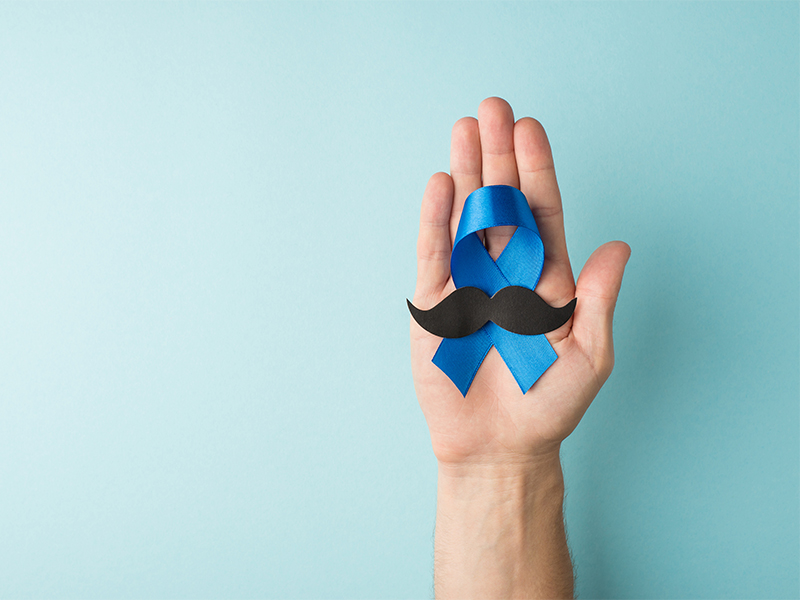In every country with reliable health statistics, women live longer than men. Part of the reason for this gender health gap is that men fall ill at a younger age and suffer more chronic disease than women. Here, we look at some key men’s health concerns including prostate cancer, sexual health, heart health and sleeping issues, and what men can do to identify, treat and reduce the risk of developing these conditions. Health screening options are available for many of these including cardiovascular screening, prostate screening and more.
# Have a comprehensive health screening
Doctors at Zest Clinic have been serving patients in Singapore with a wide range of health services including health screening for many years. DR SANKEERTH REDDY, GP and founder of the clinic, runs through some common health issues they help with.
Erectile dysfunction (ED) and premature ejaculation (PE)
ED is a common issue among men, but it doesn’t need to be a life sentence. There are a variety of treatments available to help improve sexual health and overall quality of life. Extracorporeal Shock Wave Therapy (ESWT) is a non-invasive procedure that uses low-intensity shock waves to improve blood flow to the penis, promoting natural healing and improved erectile function. PE is also a source of stress for many men, and thankfully there are effective treatments to help regain control.

Snoring and sleep issues
Zest Clinic offers a comprehensive approach to diagnosing and treating sleep disorders, helping patients achieve restful, rejuvenating sleep. According to Dr Reddy, “the non-invasive and non-surgical laser-based treatment has successfully helped men with mild to moderate snoring issues to regain restful sleep.”
Testosterone deficiency
Androgen deficiency can lead to a range of symptoms, including decreased libido, fatigue, difficulty losing fat, sluggishness and mood changes. Specialised treatments can help balance hormone levels and boost overall energy and vitality. Health screening Dr Reddy believes in proactive health management. “We offer comprehensive health screenings for chronic diseases, hormonal imbalances, sexually transmitted infections (STI), gut health issues, inflammation and more to detect potential health issues before they become serious problems,” he explains.
Weight management
Personalised weight management programmes combine the latest in science and integrative wellness. A combination of medications to assist in weight loss, bespoke nutrition plans, exercise prescriptions and a data driven approach yield definitive and sustainable results. The team works with nutritionists, metabolic health experts, trainers and health coaches to provide optimum and longlasting transformational results to help you achieve and maintain your ideal weight. “We’re committed to being your partner in helping you achieve optimal health and wellness,” says Dr Reddy.
#01-11B Precious Medical Centre, Parkway Parade, 80 Marine Parade Road
9176 9378 | info@zest.clinic | zest.clinic
# Discuss prostate screening with your doctor
Prostate cancer is the most common cancer among males worldwide. However, if caught early, it is curable, explains DR DEX KHOR, Head of Department at International Medical Clinic, Katong.
What is prostate cancer?
The prostate gland is a small doughnut-shaped gland that sits at the base of the bladder in men, surrounding the urethra or urine passage as it emerges from the bladder. The gland produces seminal fluid, the main component of semen. It can become enlarged with age and even turn cancerous.
Why should we screen for prostate cancer?
It becomes more prevalent after the age of 50, and the unfortunate reality is that it can be effectively treated in its early stages. Yet, many men are hesitant to undergo any form of screening.
How do we screen for prostate cancer?
Your doctor will speak to you about your past medical history and any urinary problems, such as poor urine stream and difficulty emptying the bladder. They will also ask about any family history of cancer, especially of prostate cancer. An examination will include a digital rectal examination, to check the size of the prostate, and a blood test. It does sound uncomfortable, but this screen is quick, safe and can save your life!
What happens after prostate cancer screening?
The Prostate Specific Antigen or PSA blood test result is reviewed. This number can be raised in early prostate cancer, but it can also be raised in infection or inflammation of the prostate (prostatitis), recent ejaculation and even excessive bicycle riding! Any raised PSA result needs to be followed up by your doctor. They may also make a referral to a urologist for further checks.
What can I do to prevent prostate cancer?
There are studies suggesting smoking and obesity are lifestyle risk factors. However, the main risk factors for prostate cancer are still age, family history of prostate cancer and Afro-Caribbean ethnicity. Screening remains the best protection against prostate cancer!
IMC Camden, IMC Children’s, IMC Jelita, IMC Katong
3174 5056 | imc-healthcare.com
# It’s okay to ask for help with your mental health
According to DR NEIL FORREST of Osler Health International, “In recent years, the importance of men’s mental health has gained recognition, bringing much-needed attention to a topic that has long been overlooked.”
Men face unique challenges and societal pressures that can impact their mental wellbeing. Traditional notions of masculinity often discourage emotional expression, leading many men to suppress their feelings and suffer in silence. “Whenever a patient consults me for the first time, I start by thinking about any lifestyle changes that would help,” says Dr Forrest. Here’s a list of changes he recommends to improve mental health:
Move your body
Regular physical exercise is not only beneficial for physical health but also has positive effects on mental wellbeing.

Eat well
In addition to exercise, proper nutrition is crucial for mental regeneration. A balanced diet rich in fruits, vegetables, whole grains, and lean proteins provides essential nutrients that support brain function and mood regulation.
Sleep
Sleep is the cornerstone of mental and physical wellness. As well as reducing alcohol intake, optimising nutrition and exercising regularly, a consistent bed time and pre-sleep routine will also help.
Make positive social connections
Lastly, fostering healthy relationships and social connections is vital for men’s mental health. Engaging in meaningful conversations and seeking social connection helps combat feelings of isolation and promotes a sense of belonging.
Men’s mental health is a topic that requires attention, understanding and action, according to Dr Forrest. “I see many men for mental wellness – please seek support and don’t be afraid to come and talk about it.
Men’s mental health facts: Did you know?
- 65 percent of men say they avoid seeking medical attention for as long as possible, citing reasons such as being too busy, believing ailments will heal by themselves, and feelings of weakness.
- Men are three times as likely to commit suicide than women, with the highest suicide rates in men aged 40 to 49.
- 40 percent of men have never spoken to anyone about their mental health.
- The biggest cause of mental health issues in men’s lives are work (32 percent), finances (31 percent) and health (23 percent). Statistics: Cleveland Clinic, Mental Health Foundation UK and The Priory UK
• #02-27/02-34 Raffles Hotel Arcade, 328 North Bridge Road | 6332 2727
• #B1-27 The Star Vista, 1 Vista Exchange Green | 6339 2727
osler-health.com
# Looking after your heart with a cardiovascular screening
Cardiovascular diseases (CVDs) are the leading cause of death globally. They affect the heart or blood vessels and are usually associated with a build-up of fatty deposits inside the arteries and an increased risk of blood clots.
The five most common CVDs are heart attack, stroke, heart failure, arrhythmia and heart valve complications. More than four out of five CVD deaths are due to heart attacks and strokes, and one third of these deaths occur prematurely in people under 70 years of age. Cardiovascular screening can help pick up the signs of CVD.

What are the signs and symptoms?
Early CVD has no symptoms – it takes time to progress. Significant CVD causes chest tightness, chest pain, shortness of breath and decreased exercise tolerance. It’s also one of the main causes of sudden death.
Who is at risk of developing CVD?
Everyone might be at risk. The most important behavioural risk factors of heart disease and stroke are unhealthy diet, physical inactivity, tobacco use and harmful use of alcohol. Other risk factors include family history, age, raised blood pressure, blood glucose and blood lipids, and/or being overweight or obese. These can be measured to give you an indication of your risk.
How do you know if you’re at risk and should go for cardiovascular screening?
“It’s important to visit a doctor whenever you feel unwell and have regular check-ups,” recommends DR FIONA CHANG from Complete Healthcare International. Many do not understand the importance of an annual health screening, she explains. A cardiovascular screening could potentially detect underlying medical conditions even without symptoms, allowing diseases to be treated before complications and risks arise. Dr Chang adds: “Health screening not only means checking your cholesterol, but also using other indicators and scans to assess your cardiovascular health better.”
#08-00 Shaw House, 350 Orchard Road
6776 2288 | enquiries@chi-health.com.sg
chi-health.com.sg
# Recognising the male loneliness epidemic
Therapist TOM MANIATIS is a senior addictions therapist and health services manager at Promises Healthcare with many years’ experience offering counselling and support to men (and women) in Singapore. He’s noticed the increasing trend of male loneliness and poor mental health in men in recent times.

What are the root causes of the male loneliness epidemic?
There’s a rise in feelings of loneliness which transcends gender lines, and can impact individuals across the spectrum. “Probably due to economic development, there has been a societal shift from a collectivist mindset with robust family bonds to a more individualistic approach which has diluted our interconnectedness, fostering a sense of isolation,” explains Tom.
The traditional social construct of masculinity has changed but traditional notions may still be held onto internally by some men. Some of the common ones include being protectors/providers, and not showing vulnerability. However, the contemporary social landscape often leaves men feeling adrift as it can conflict with these traditional notions.
What symptoms should we look out for?
Often there’s a feeling of a lack of purpose, and relationships with others seem less meaningful; a sense of loneliness ensues even if we interact with others regularly. According to Tom, this emotional vacuum, coupled with a tendency to conceal vulnerability, isolation and the pressure of unmet expectations, can become a breeding ground for mental health struggles and addiction issues.
“Research indicates that men have higher rates of suicide and substance use than women, but these issues are of course not exclusive to people identifying as men, and I often see people across the gender spectrum with similar issues.”
If a man in your life is suffering, what can you do to offer support, and how can counselling help?
Listening without judgement and encouraging vulnerability while avoiding the urge to fix everything can be a very useful first step. Often professional support is the best option, as it can help people emotionally heal, tackle addiction issues, and enhance wellbeing and communication. “In my practice, I’ve seen countless men who have found enduring relief through recovery, radiating positive effects on partners, relationships, and families.”
#09-22/23, Novena Medical Center, 10 Sinaran Drive
6397 7309 |promises.com.sg
This article first appeared in the November 2023 edition of Expat Living. You can purchase the latest issue or subscribe so you never miss a copy!
To make the most of living in Singapore, read our latest City Guide here for free!
Like this? Find out more in our Health & Fitness section.




